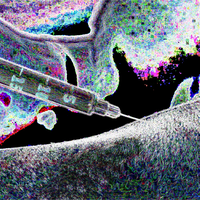| DES | |
|---|---|
| Esters [] | |
|---|---|
| Diethylstilbestrol propionate | |
| Diethylstilbestrol dipropionate | |
| Molecular structure via molpic based on CDK |
| Physical properties [] | |
|---|---|
| Molecular mass | 268.3 g/mol [1] |
| Appearance | White crystalline powder [1] |
| Odor | Odorless [1] |
| Melting point | 336 to 342 °F (NTP, 1992) [1] |
| Decomposition | When heated to decomposition it emits acrid smoke and fumes. [1] |
| Solubility | less than 1 mg/mL at 68 °F (NTP, 1992) [1] |
| Predicted LogP | 5.1 [1] |
| Structural Identifiers [] | |
|---|---|
| Molecular formula | C18H20O2 [1] |
| IUPAC name | 4-[(E)-4-(4-hydroxyphenyl)hex-3-en-3-yl]phenol [1] |
| SMILES | CC/C(=C(/CC)\C1=CC=C(C=C1)O)/C2=CC=C(C=C2)O [1] |
| InChI | InChI=1S/C18H20O2/c1-3-17(13-5-9-15(19)10-6-13)18(4-2)14-7-11-16(20)12-8-14/h5-12,19-20H,3-4H2,1-2H3/b18-17+ [1] |
| InChIKey | RGLYKWWBQGJZGM-ISLYRVAYSA-N [1] |
| Pharmacokinetics[] | |
|---|---|
| Elimination half-life | 24 hours |
Diethylstilbestrol
(Redirected from Stilbestrol)Diethylstilbestrol (also known as Stilbestrol, Stilboestrol, Distilbene, Estrobene, Estromenin, Stilbetin, Stilboestroform, Antigestil, Palestrol or Synestrin)
Chemistry
Esters []
Diethylstilbestrol is typically found in the form of its propionate and dipropionate esters.
Stereochemistry []
Diethylstilbestrol is a achiral mixture
 Anodyne
Anodyne